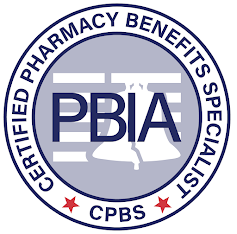News and notes from around the interweb:
- New Prescription Drug and Health Care Spending Reporting Requirements from a Carrier and Plan Service Provider Perspective. Data required to be included in the reports falls into two categories: (1) information that cannot be aggregated and must be provided for each plan or insurance coverage, and (2) information that can be aggregated across plans or insurance coverage in the same state and market segment. Reports will need to list out the information falling under category (1) separately for each plan or coverage before providing the information falling under category (2).
- DIR charges from PBM increased by 91,500% in just 9 years. The probe by the Centers for Medicare and Medicaid Services (CMS) will center on huge increases in direct and indirect remuneration fees that PBMs charge pharmacies on Medicare prescriptions. These DIR fees were implemented as a way to incentivize U.S. pharmacies collecting millions of Medicare dollars to do more than simply push pills. But the assessment — charged well after a prescription drug sale is supposedly complete — evolved into a system that today offers pharmacies only penalties through higher and higher fees, even if every PBM performance standard is achieved. The fees now total $11.2 billion a year, up from $200 million in 2013.

Join the Movement! Documents reveal the secrecy of America’s drug pricing matrix. Several people who work in the industry, who asked not to be named due to the confidential nature of coalitions, said most employers, regardless of how big they are, have no idea what they’re giving up when they enter coalitions. Once employers are locked into the coalition, they can’t get a full second opinion on the drug prices they pay, experts said.
- The Consolidated Appropriations Act Introduces Broker Compensation Transparency. Effective December 27, 2021, brokers and consultants of ERISA covered group health plans, regardless of size, will be required to execute a written contract with a responsible plan fiduciary which includes a description of the services to be provided, a description of all direct compensation the broker expects to receive, and a description of all expected indirect compensation including vendor incentive payments.
- CMS Plans to Regulate Pharmacy Benefit Manager DIR Fees. On Dec. 14, 2021, the Centers for Medicare and Medicaid Services (CMS) unexpectedly issued a letter to U.S. Senator Ron Widen (D-OR)[1] indicating that CMS plans to use its “administrative authority to issue proposed rulemaking” addressing price concessions and direct and indirect remuneration (DIR) fees that pharmacy benefit managers (PBMs) have increasingly charged to specialty and retail pharmacy providers in Medicare and other pharmacy benefit programs in recent years. CMS’s letter is welcome news to pharmacy providers around the country and could result in substantial disruption to a multi-billion-dollar line of fees that PBMs have previously realized.
The Certified Pharmacy Benefits Specialist (CPBS) educational offering includes knowledge that is critical to effective management of the pharmacy and medical drug benefit. If you want to learn more, click here.
